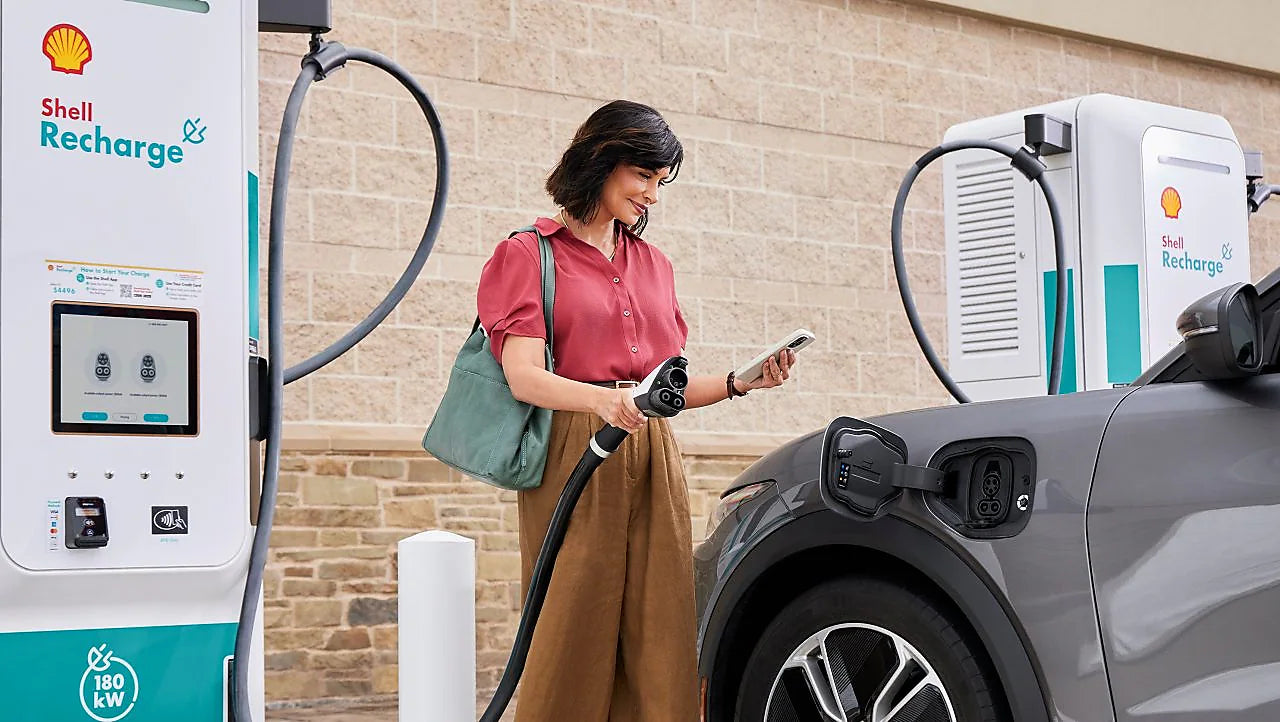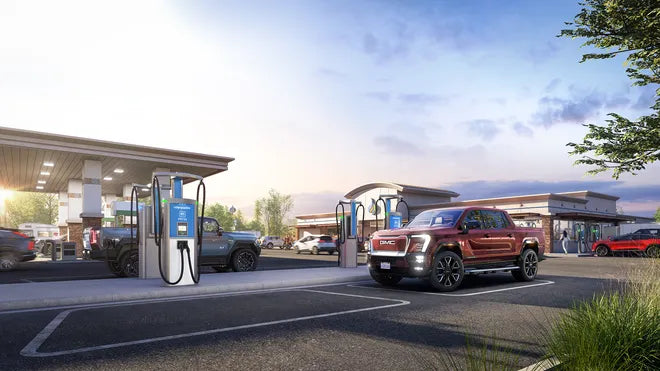Shell has announced the launch of a new electric vehicle (EV) charging network designed specifically for heavy-duty fleets, marking a significant step in the energy giant’s broader strategy to accelerate transport decarbonization and support the logistics sector in its transition to electric mobility.

Supporting Fleets Beyond the Depot
The company says the initiative is particularly aimed at helping fleets that do not have sufficient depot capacity to electrify their operations. Instead of requiring operators to make large upfront investments in private charging infrastructure, the new network will allow long-haul and heavy-duty electric vehicles to tap into Shell’s public and roaming charging networks.
According to Shell, this model provides flexibility and scalability, while ensuring access to “stable and reduced energy pricing” across the network. By lowering the cost of charging and providing predictable pricing, Shell hopes to address one of the main barriers to fleet electrification: uncertainty around operating costs.
SBRS to Deliver Depot-Based Solutions
A key role in the rollout will be played by SBRS, a Shell Group subsidiary specializing in charging systems. SBRS will deliver depot-based elements of the network, including charging hardware, software integration, and energy system support. These services will allow fleets to integrate charging into daily operations, while the rest of Shell’s public charging infrastructure continues to operate as usual.
Shell also confirmed that network participants—such as companies that offer their charging facilities for shared use—will be able to generate new revenue streams and optimize their energy costs. This collaborative model is expected to broaden infrastructure availability while incentivizing more stakeholders to join.
Contargo: An Early Adopter
German logistics company Contargo has already been highlighted as an early partner in the project. SBRS is supporting the company in the development of a large private depot charging network.
Kristin Kahl, Management Sustainable Solutions at Contargo, emphasized the importance of integration:
“Fleet electrification only works when charging is fully integrated into daily operations, which is why we’ve combined different models across our network. With Contargo planning to roll out 90 electric trucks and 90 charging points by the end of the year, we’re observing how integrated infrastructure can support scaling up and contribute to reducing emissions in logistics operations.”
This partnership illustrates how Shell’s charging initiative can combine depot-based solutions with broader network access, giving logistics operators the best of both worlds.
A Turnkey Solution for Customers
On the customer-facing side, Shell is positioning the initiative as a turnkey solution. Fleet operators will be able to access charging infrastructure, energy management tools, and electricity provision through a single tailored package.
This means that, in some cases, operators may not need their own depots at all. Instead, they can rely on Shell’s integrated system to provide dependable charging access across multiple routes, removing one of the most significant logistical challenges for electrification.
Cost Savings and Scalability
Conrad Mummert, Head of SBRS at Shell, explained the broader impact of the initiative:
“Our integrated charging network supports fleet operators by providing dependable access and helps to reduce the total cost of ownership for battery-electric trucks by up to 25%. That reduction is driven by a combination of cost-saving and revenue-generating opportunities—from stable, discounted energy pricing and charging optimization, to monetizing depot access during off-peak hours.”
By reducing total cost of ownership (TCO), Shell expects the network to accelerate adoption among logistics companies that are often wary of the upfront costs associated with electric trucks.
Industry Context and Outlook
The launch comes at a time when decarbonizing freight transport is a top priority for governments and corporations worldwide. Heavy-duty trucks are responsible for a disproportionate share of road transport emissions, making their electrification a key milestone in achieving climate goals.
Shell’s move underscores the growing competition among energy and charging providers to secure a foothold in the emerging heavy-duty EV market. By leveraging its global infrastructure, energy expertise, and partnerships with technology providers, Shell aims to position itself as a leader in the sector.
The company also highlighted that as the network expands, more partners are expected to join, increasing interoperability and accessibility for electric trucks across Europe and beyond.

Conclusion
With this initiative, Shell is offering more than just charging points—it is building an ecosystem for fleet electrification. By combining depot-based solutions with roaming access, stable pricing, and integrated energy management, the company hopes to ease the transition for logistics operators and make heavy-duty electrification both practical and economically viable.
As Contargo and other partners scale up their electric fleets, Shell’s charging network could prove to be a critical piece of the puzzle in decarbonizing freight transport across Europe and potentially other regions.
Recommend Reading: Rivian Expands Fast-Charging Network AND Opens Most Stations to All EVs







Share:
GM Temporarily Halts Production of Hummer EV and Escalade IQ
Rivian to Introduce Apple Car Key for R1T and R1S Soon